- Mercure de France, Paris 1918, 14,5x23cm, relié. - Mercure de France Paris 1918 | 14,5 x 23 cm bound in morocco First edition, a first impression copy numbered in the press. Binding in half brown morocco, spine in five compartments, gilt date at the foot, geometric pattern paper boards and endpapers in the same paper, top edge gilt, wrappers and spine preserved in perfect condition, binding signed by T. Boichot. Apollinaire's second major poetic work with bold graphic innovations and a portrait of Guillaume Apollinaire by Pablo Picasso as frontispiece. "Some of the best war poems, all languages combined, are brought together in this collection, alongside experimental works such as Les Fenêtres (close to Cubism) and La Jolie Rousse, which were far ahead of their time" (Cyril Connolly, Cent livres-clés de la littérature moderne, n° 32). A beautiful copy on non-brittle paper which is unusual, and a rare and surprising handwritten inscription signed by Guillaume Apollinaire: "à monsieur le critique littéraire de La Libre Parole, hommage de Guill. Apollinaire." ("To the literary critic of La Libre Parole, tribute by Guill. Apollinaire.") Who could be the recipient of this inscription, unnamed but addressed to a collaborator of the famous anti-Semitic newspaper founded by Édouard Drumont? The ostensibly philo-Semitic position of Guillaume Apollinaire is well-known. In an 1899 letter, he boasts to Toussaint Luca that he tried to provoke Henri Rochefort, who was reading La Libre Parole, by deploying L'Aurore in front of him but, as the young Dreyfusard regrets, without daring to engage the controversy. In 1902, he publicly marked his fraternity with the Jewish people with a new publication in La Revue blanche, "Le Passant de Prague": "I love Jews because all Jews suffer everywhere". Then in Alcools, he will dedicate a poem to the Hebrew religion: "La Synagogue". But it is undoubtedly through his poem "Le Juif latin", published in L'Hérésiarque et Cie that Apollinaire poetically reveals the essence of his particular link with Judaism: that he shares the condition of eternal stranger, the feeling of uprooting and the search for identity. It may, therefore, seem very surprising that this poet, whose only trace of political commitment was in favor of Dreyfus, dedicated his work to a La Libre Parole journalist, even if he is a literary critic. And in fact, La Libre Parole does not contain literary columns! A few months before the poet's death, this laconic inscription thus proves to be a formidable and final scoff of poetic impertinence to political intolerance. [FRENCH VERSION FOLLOWS] Édition originale, un des exemplaires de première émission numérotés à la presse. Reliure en demi maroquin marron, dos à cinq nerfs, date dorée en queue, plats de papier à motifs abstraits, gardes et contreplats papier bleu-gris, tête dorée sur témoins, couvertures et dos en parfait état conservés, reliure signée T. Boichot. Second recueil majeur du poète-soldat aux innovations graphiques inédites et illustré, en frontispice, d'un portrait de Guillaume Apollinaire par Pablo Picasso. "Quelques-uns des meilleurs poèmes de guerre, toutes langues confondues, sont réunis dans ce recueil, à côté d'oeuvres expérimentales comme Les Fenêtres (proche du cubisme) et La Jolie Rousse, qui étaient très en avance sur leur temps" (Cyril Connolly, Cent livres-clés de la littérature moderne, nº 32). Bel exemplaire au papier non cassant ce qui est peu fréquent, rare et étonnant envoi autographe signé de Guillaume Apollinaire?: «?à monsieur le critique littéraire de La Libre Parole, hommage de Guill. Apollinaire.?» Qui pouvait être le destinataire de cette dédicace non nominative mais adressée à un collaborateur du célèbre journal antisémite fondé par édouard Drumont ? On connait la position ostensiblement philosémite de Guillaume Apollinaire qui s'enorgueillit dans une lettre de 1899 auprès de Toussaint Luca d'avoir tenté de provoquer Henri Rochefort lisan
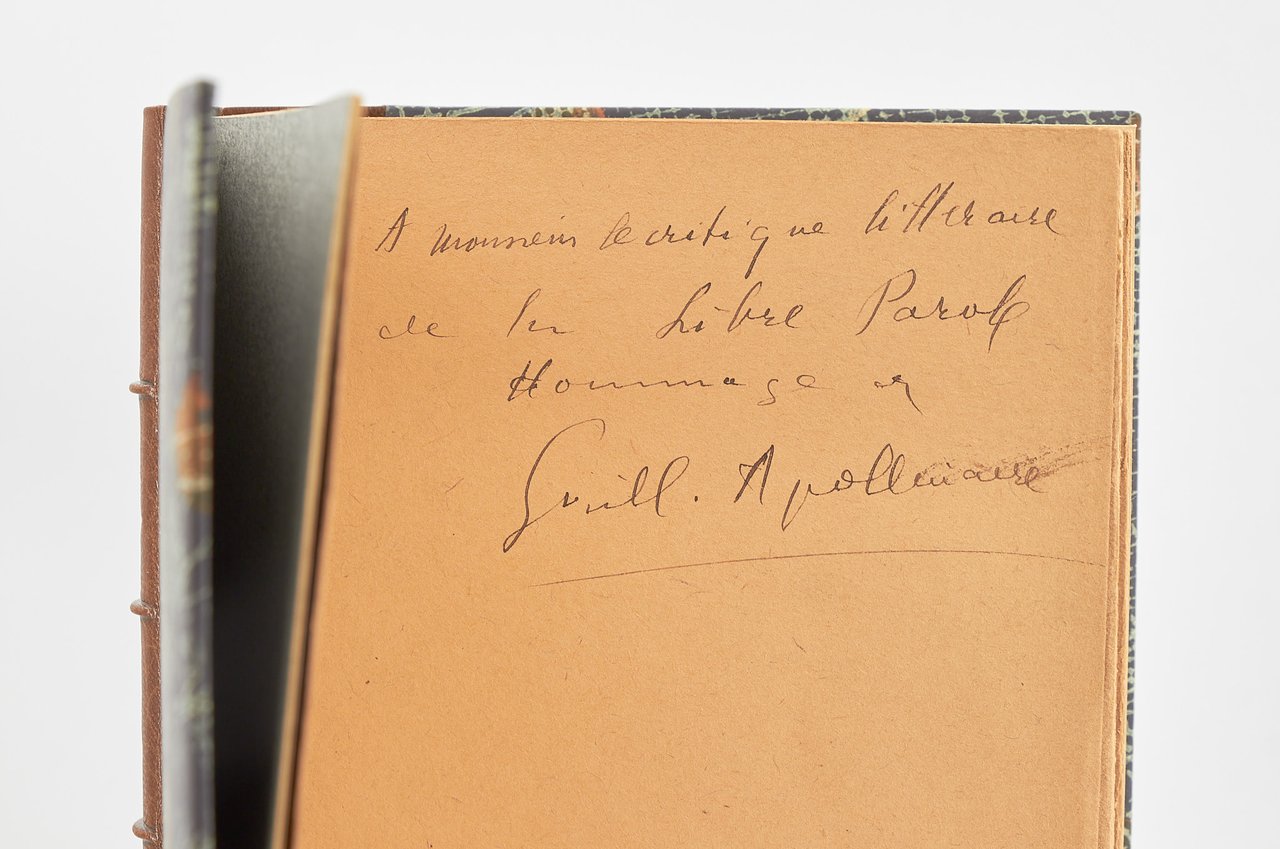
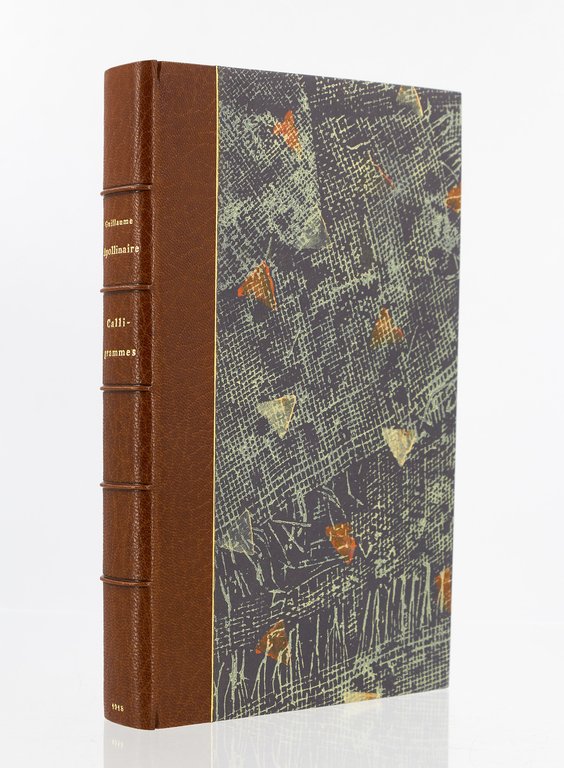
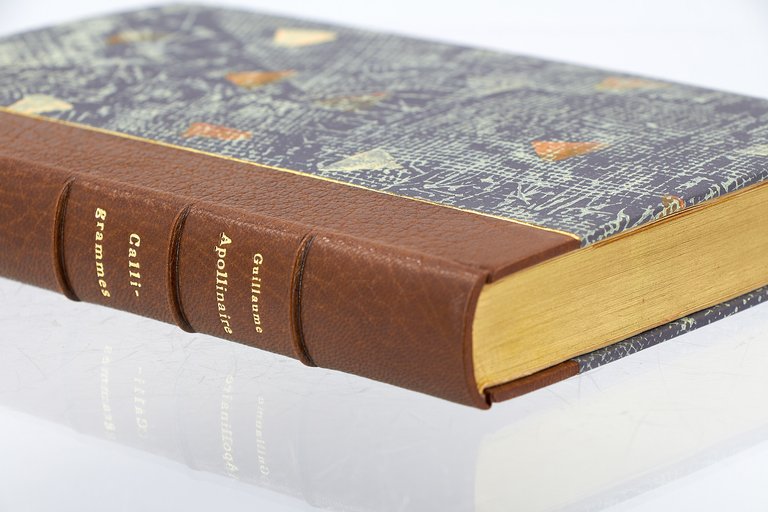
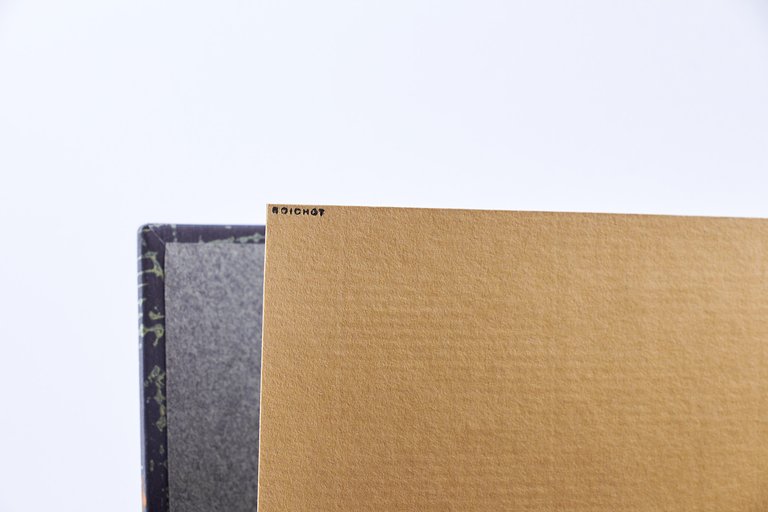
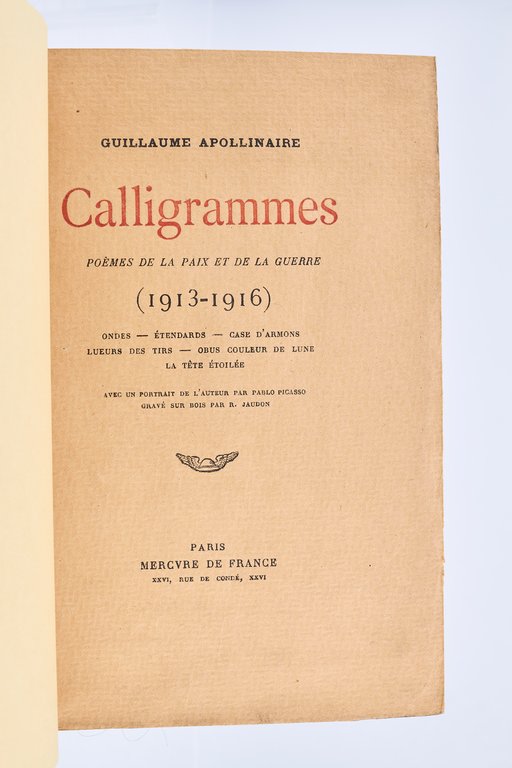
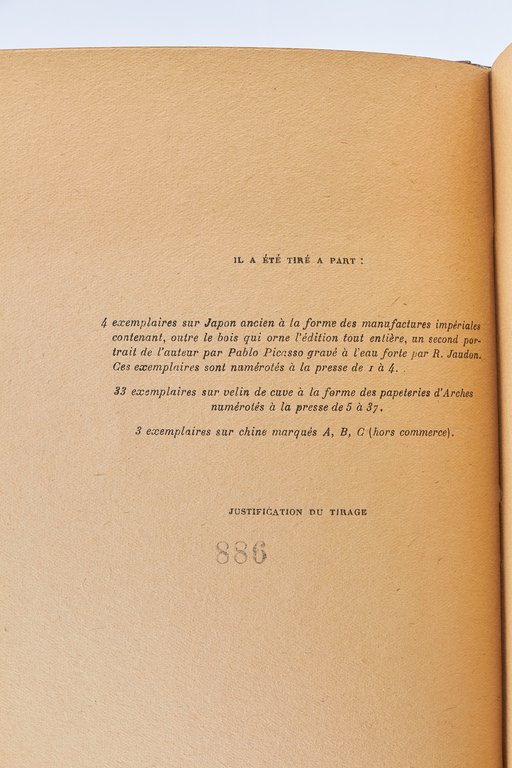
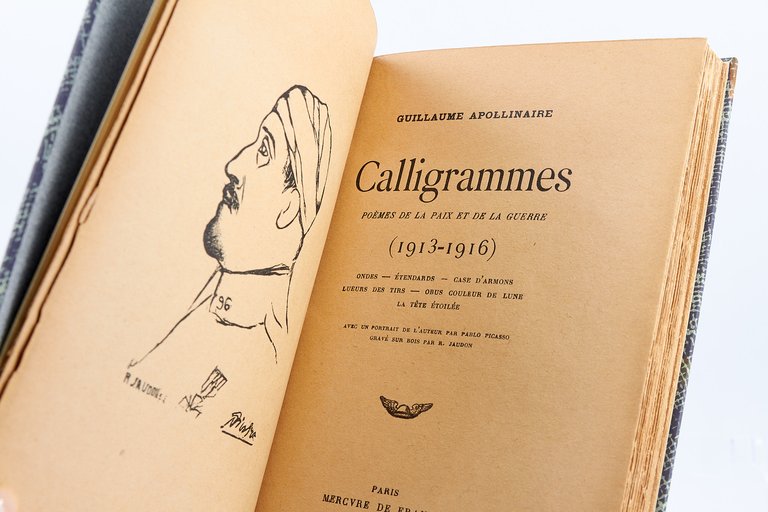
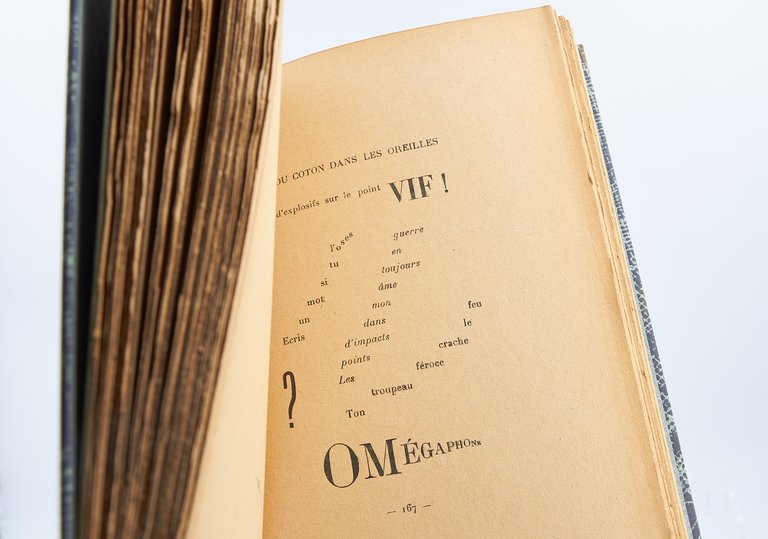
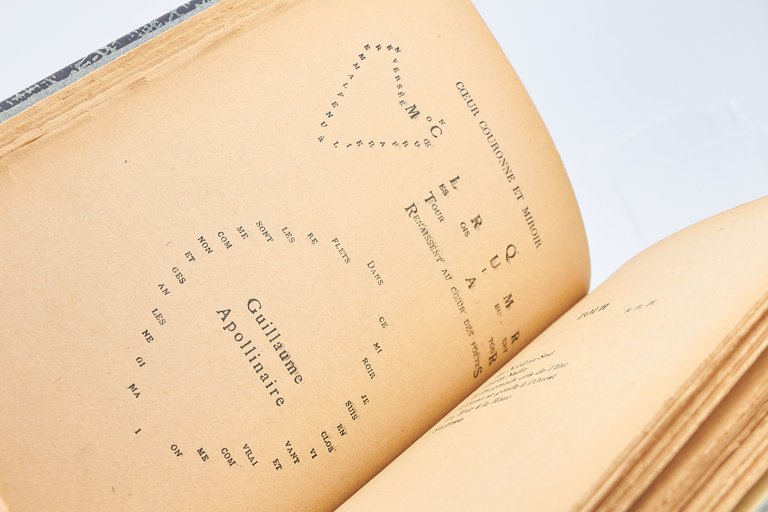
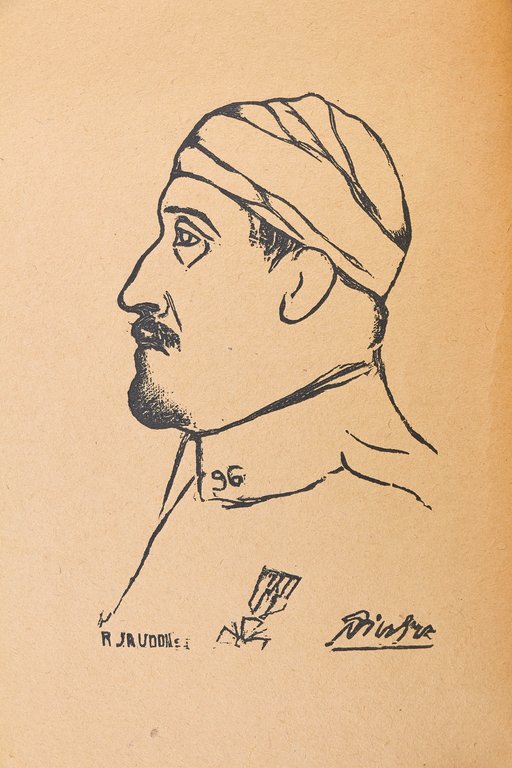
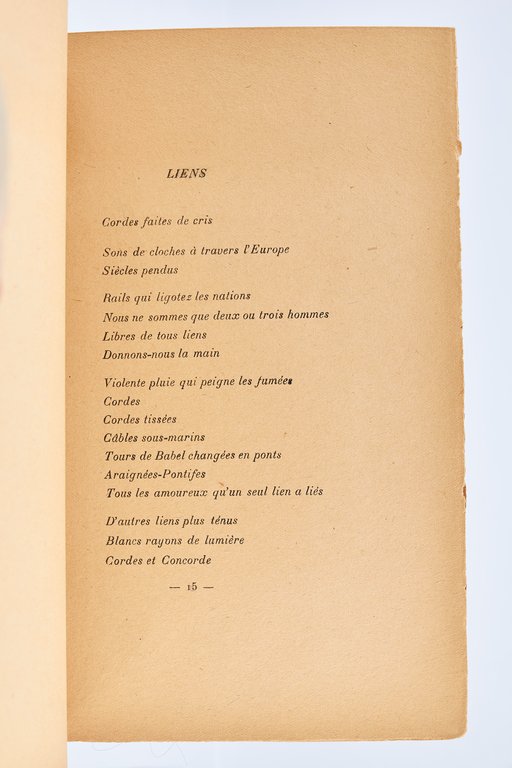
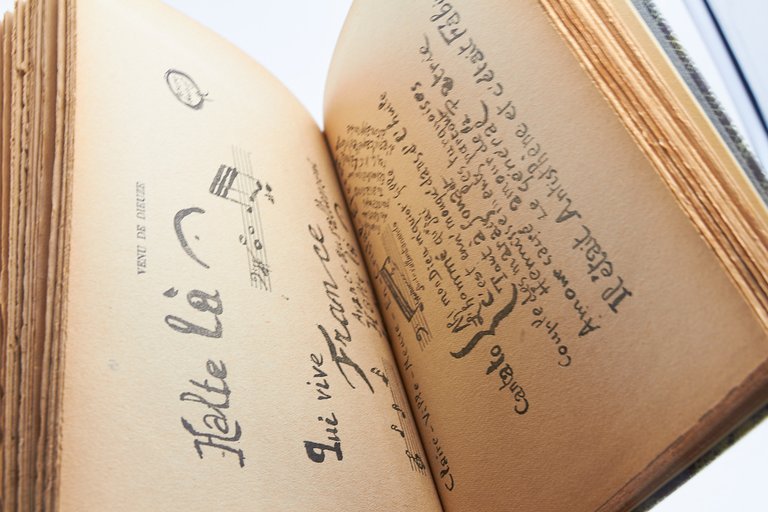
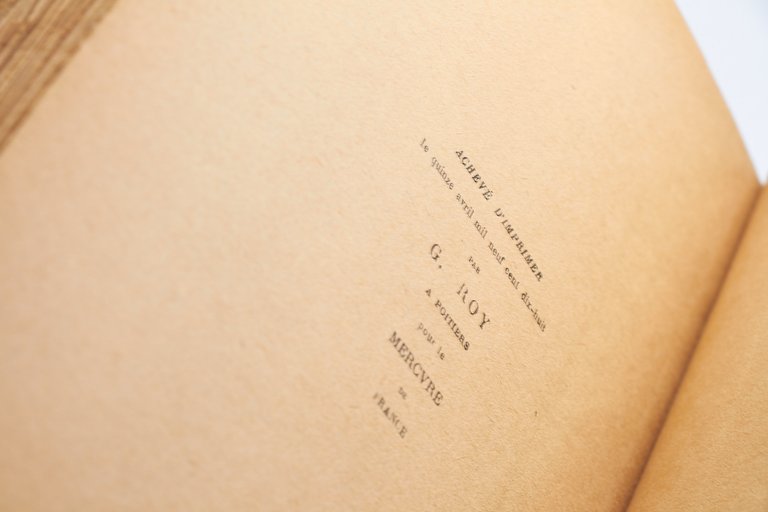
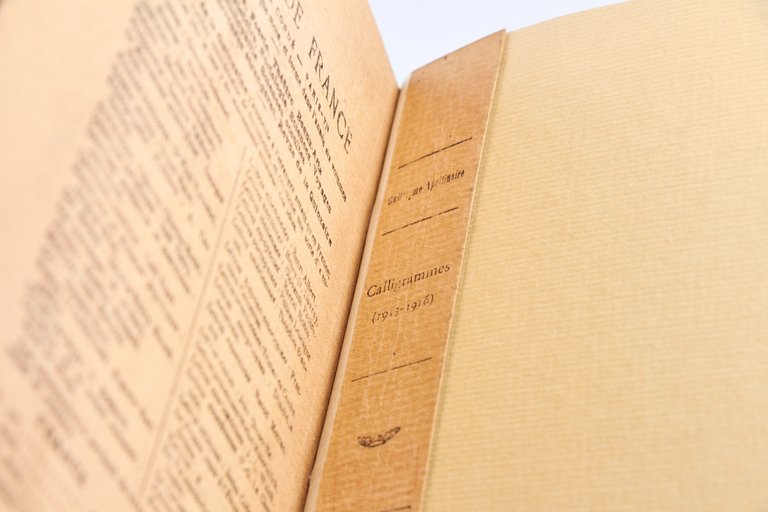
Découvrez comment utiliser
Découvrez comment utiliser

